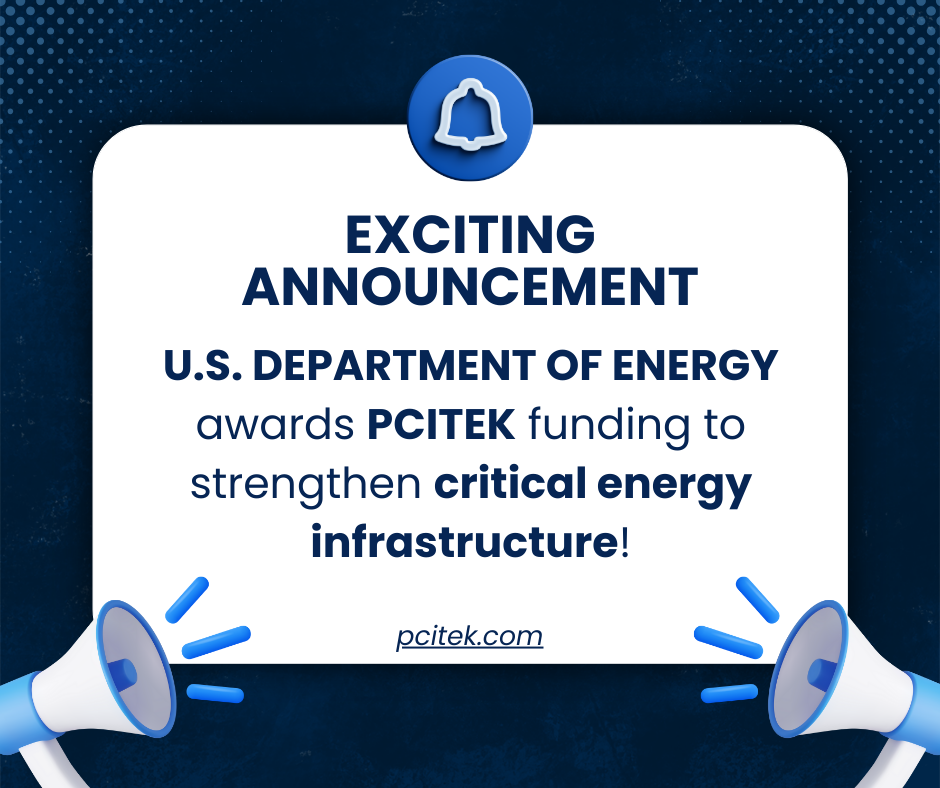
SHELL KNOB, MISSOURI, On February 26, 2024, the U.S. Department of Energy announced that EPRI received $5 million to identify new cybersecurity tools and technologies designed to reduce cyber risks for energy infrastructure. The EPRI team, which includes Project Consultants, LLC (DBA: PCItek), will implement new cyber security for the DNP3 AMP standard used by Electric Utilities in North America.
Cybersecurity innovations are necessary to ensure the U.S. energy systems can continue to supply energy to American homes, businesses, and communities. This funding, awarded through DOE’s Office of Cybersecurity, Energy Security, and Emergency Response (CESER), will support the Garibaldi Key Distribution and System Management System.
“I am thrilled that PCItek has been recognized by the U.S. Department of Energy for our commitment to strengthening the security of the utility industry,” said Margaret Goodrich, President of PCItek. “We are proud to provide innovative solutions that support the resilience of our nation’s energy grid against cyber threats. This funding enables us to further develop and implement cutting-edge cybersecurity tools, ensuring a safer and more reliable energy supply for all Americans.”
The Distributed Network Protocol (DNP3) Authentication and Authorization project will leverage PCItek’s expertise in integrating operational systems to develop and implement innovative cybersecurity solutions for critical energy infrastructure. This project aims to advance the security in the relays for utility grids and ultimately strengthen the resilience of the U.S. energy grid against cyberattacks.
As part of the project, the PCItek Garibaldi Key Distribution and System Management System will be extended to provide a management entity (a.k.a. a DNP3 Authority) for the Distributed Network Protocol (DNP3) Authentication and Authorization Protocol (a.k.a. AMP). This project is one of 16 projects selected by CESER to address a wide range of current and emerging cyber threats facing energy systems, including electricity, oil, and natural gas, from generation through delivery and provides centralized security management for DNP3 SAv6.
The power grid faces unique cybersecurity challenges due to its complex infrastructure and reliance on industrial control systems. Threats include physical security breaches, malware attacks, and zero-day exploits.
Utilities must adhere to strict regulations, such as NERC CIP standards, to protect critical infrastructure. Implementing best practices like access control, network segmentation, and intrusion detection systems can bolster security measures. Staying informed about emerging threats and trends is crucial for maintaining a resilient power grid.
Cybersecurity tools elevate the value proposition of digital substation relays, providing a competitive advantage for OEMs, VARs, and salespeople. Implementation technicians can receive detailed explanations of these cutting-edge security features and functionalities. These advanced solutions empower utilities to safeguard their power grid against cyber threats proactively.
Click here to read more about CESER. Learn more about PCItek’s work in cybersecurity here.
About PCItek
PCItek specializes in cyber security products and model/data integration for Operations in the utility industry. Their expertise in data exchange models, message payloads, and cybersecurity is unsurpassed. Our solutions streamline operations, enhance security, and ensure reliable energy delivery. PCItek is committed to empowering utilities with cutting-edge technology to meet the evolving challenges of the modern energy landscape.
About CESER
The Department of Energy’s Office of Cybersecurity, Energy Security, and Emergency Response (CESER) is dedicated to reducing the risk of energy disruptions caused by cyber threats. CESER collaborates with government, industry, academia, and national laboratories to develop innovative cybersecurity solutions.
The office focuses on research, development, and demonstration projects that enhance information sharing, mitigate cyber incidents, and increase the resilience of the U.S. energy infrastructure. CESER’s work aligns with national priorities and directives to ensure the security of our nation’s energy systems.
